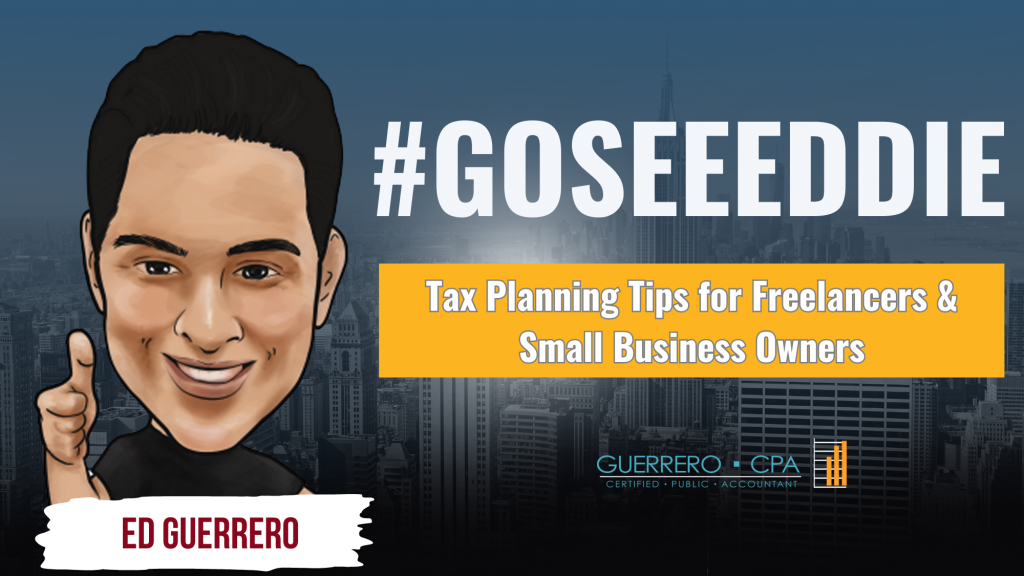Tax Planning Tips for Freelancers & Small Business Owners

Freelancers and small business owners enjoy freedom, flexibility, and the chance to be their own boss. But with that freedom comes a challenge: taxes. Unlike employees with steady paychecks and automatic withholdings, freelancers and entrepreneurs must juggle unpredictable income, track expenses, and make quarterly payments—all without missing a beat.
The truth is, taxes don’t have to be overwhelming. With smart planning, you can stay compliant with the IRS, minimize your tax bill, and even use taxes as a tool to grow your business. This guide will walk you through the best tax planning tips for freelancers and small business owners in 2025.
Why Tax Planning Matters for Freelancers & Small Businesses
For freelancers and business owners, tax season isn’t once a year—it’s ongoing. Poor planning can lead to surprise tax bills, penalties, or missed opportunities to save.
👉 Analogy: Think of taxes like fuel for your car. If you plan your fuel stops, the trip is smooth. If you don’t, you risk running out on the highway.
Understand Estimated Quarterly Taxes
Freelancers and small business owners must pay taxes quarterly:
- January 15, April 15, June 16, and September 15, 2025 are your deadlines.
- These payments cover income tax and self-employment tax (Social Security & Medicare).
👉 Tip: Save 25–30% of your income for taxes so you’re never caught off guard.
Track Every Business Expense
From software subscriptions to client lunches, business expenses lower your taxable income.
- Office supplies (laptops, printers, notebooks).
- Subscriptions (Zoom, Adobe, Canva).
- Client-related expenses (meals, gifts under $25).
👉 Use an expense-tracking app so nothing slips through the cracks.
Separate Business and Personal Finances
Mixing business and personal accounts is a recipe for disaster (and an IRS audit).
- Open a dedicated business bank account.
- Use a business credit card for expenses.
- Pay yourself a “salary” instead of dipping into business funds.
Leverage the Home Office Deduction
If you work from home, you may qualify for the home office deduction.
- Simplified Method: $5 per square foot (up to 300 sq. ft.).
- Regular Method: Percentage of actual expenses (rent, utilities, internet).
👉 Only claim this if the space is used exclusively for business.
Retirement Savings Options for Entrepreneurs
Self-employed individuals have powerful retirement options that also reduce taxable income:
- SEP IRA: Contribute up to 25% of net earnings.
- Solo 401(k): Allows larger contributions than a traditional IRA.
- Traditional IRA: Simple but effective.
👉 Retirement contributions = future savings + present tax benefits.
Vehicle and Travel Expense Planning
- Mileage Deduction (2025): 67 cents per mile.
- Business Travel: Hotels, airfare, rental cars, and 50% of meals are deductible.
👉 Keep a mileage log or use apps like MileIQ.
Health Insurance and Medical Deduction Strategies
Self-employed individuals can deduct health insurance premiums for themselves, spouses, and dependents. If your medical expenses exceed 7.5% of income, you may deduct those too.
Use Accounting Software & Tools
Managing taxes manually is a headache. Tools like:
- QuickBooks – for bookkeeping.
- FreshBooks – for invoicing.
- Expensify – for receipts and expenses.
👉 Automation reduces stress and ensures accuracy.
When to Hire a Tax Professional
Hiring a CPA isn’t just for big companies. If you:
- Earn more than $80,000 as a freelancer.
- Run a business with employees.
- Deal with complex write-offs.
…a professional can save you more than they cost.
Smart Year-End Tax Moves
Before December 31, consider:
- Making charitable donations.
- Purchasing business equipment to deduct immediately.
- Contributing to retirement accounts.
👉 Year-end planning is where big savings happen.
Common Mistakes Freelancers and Owners Make
- Not paying quarterly taxes.
- Forgetting deductions.
- Mixing accounts.
- Waiting until April to organize records.
Conclusion
Being a freelancer or small business owner means wearing many hats—but with smart tax planning, you don’t need to fear tax season. By paying quarterly, tracking expenses, using deductions, and investing in retirement, you can reduce your tax bill and focus on what you love most: growing your business.
👉 Remember: Tax planning isn’t just about saving money—it’s about building a strong financial future.
FAQ
Yes. If you expect to owe over $1,000 in taxes, the IRS requires quarterly estimated payments.
Yes, if used for business. Deduct the percentage used for work.
A Solo 401(k) allows the highest contributions, but a SEP IRA is easier to set up.
No, generally only 50% of business-related meals are deductible.
Not always. But if your finances are complex, a CPA is worth the investment.
